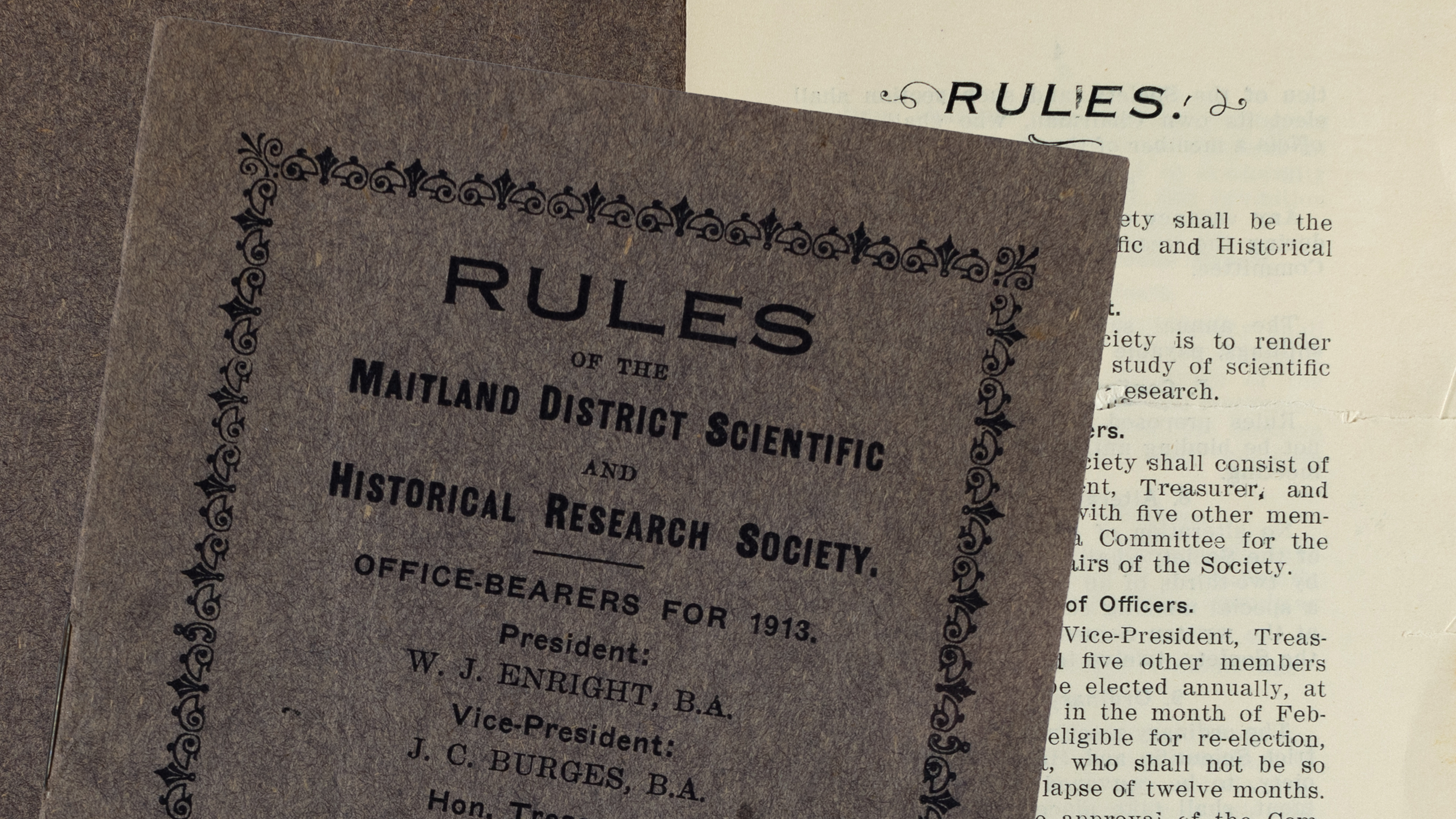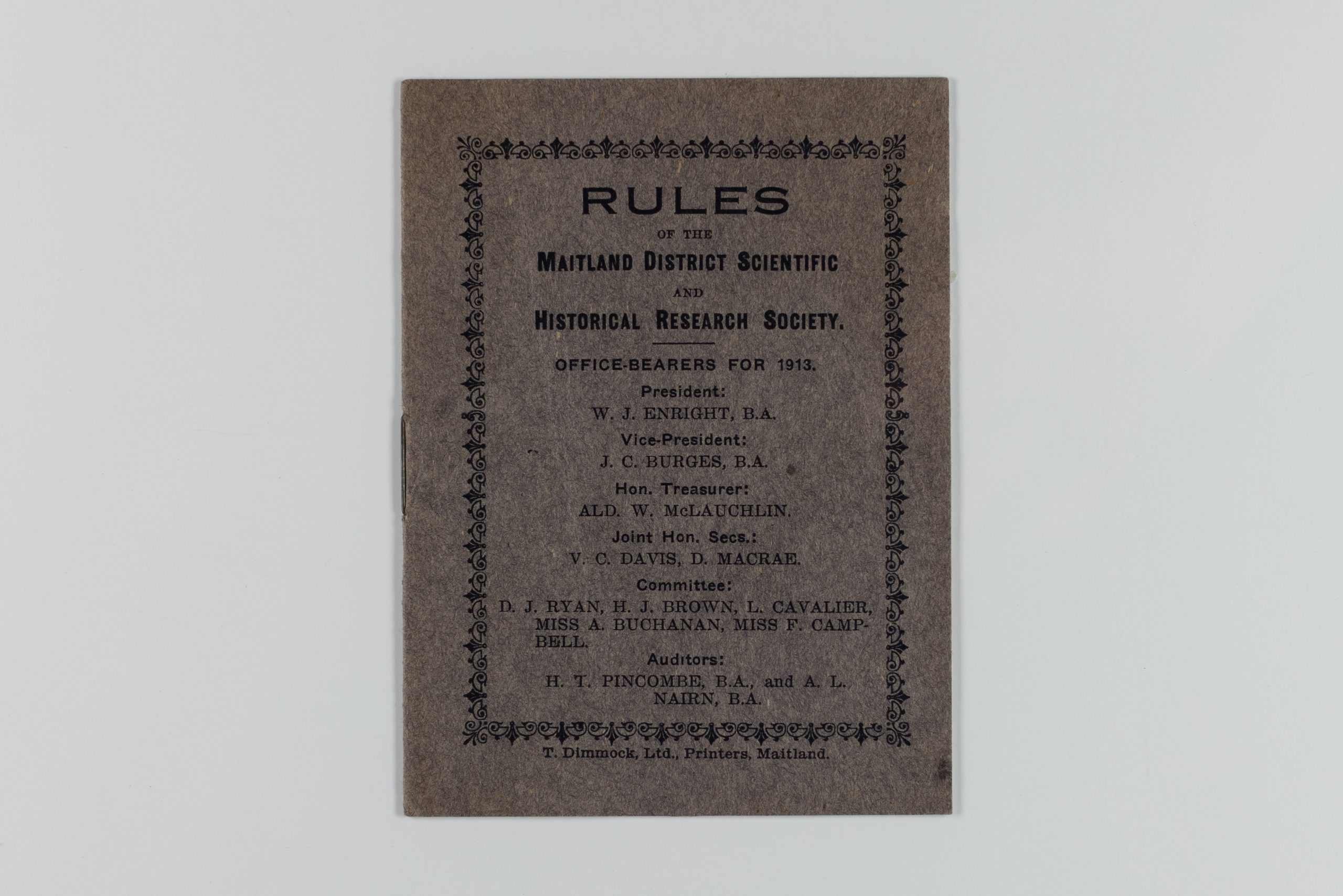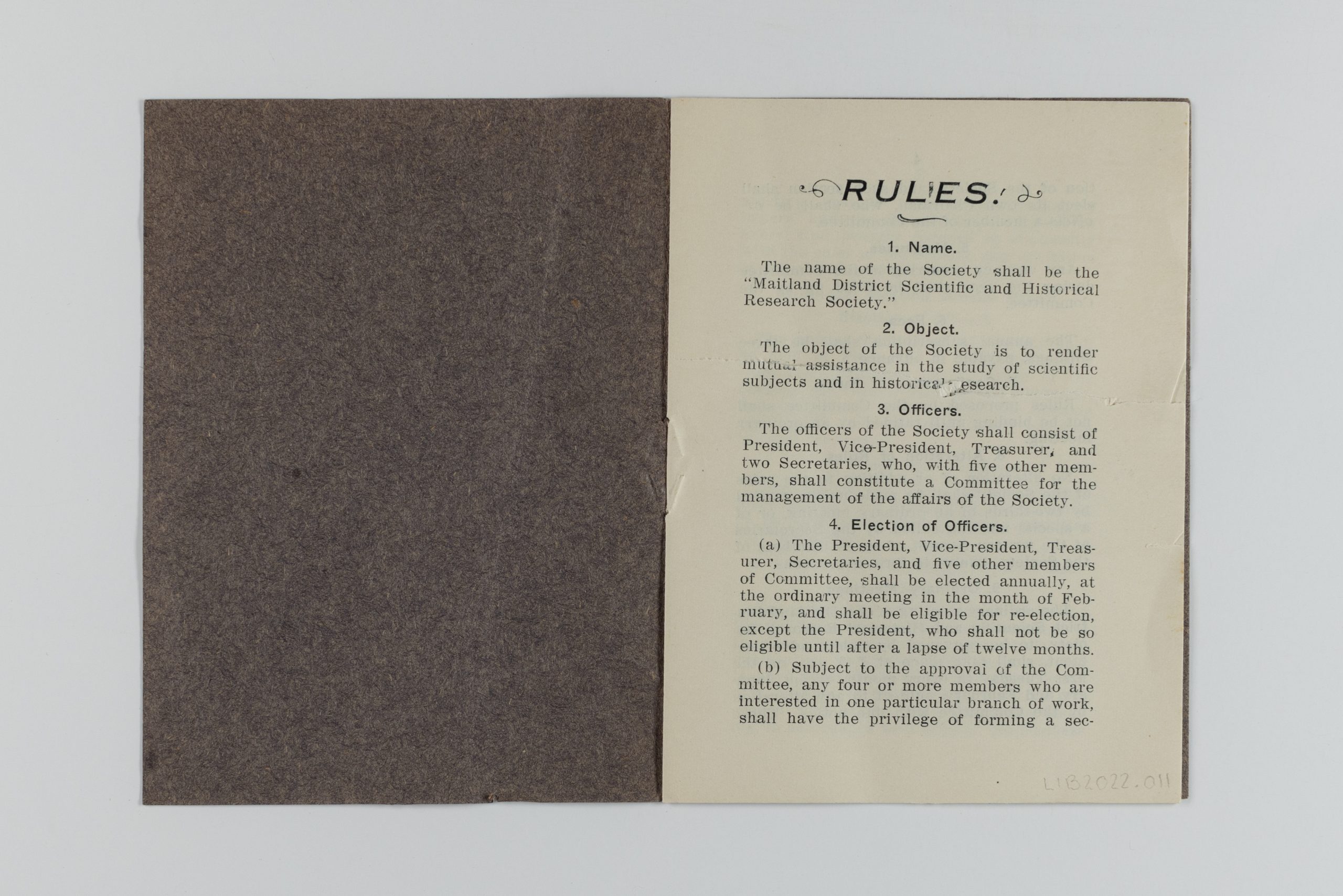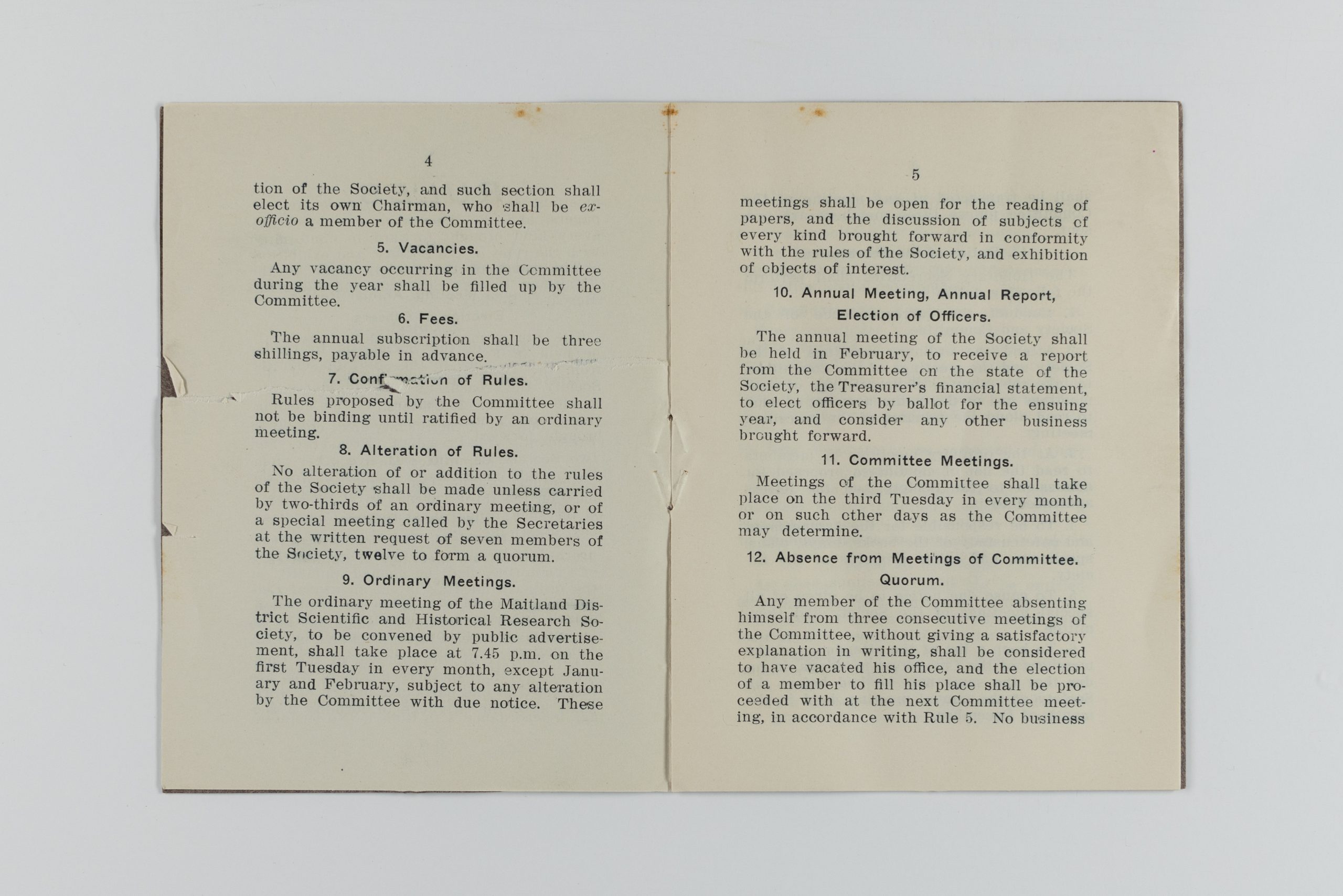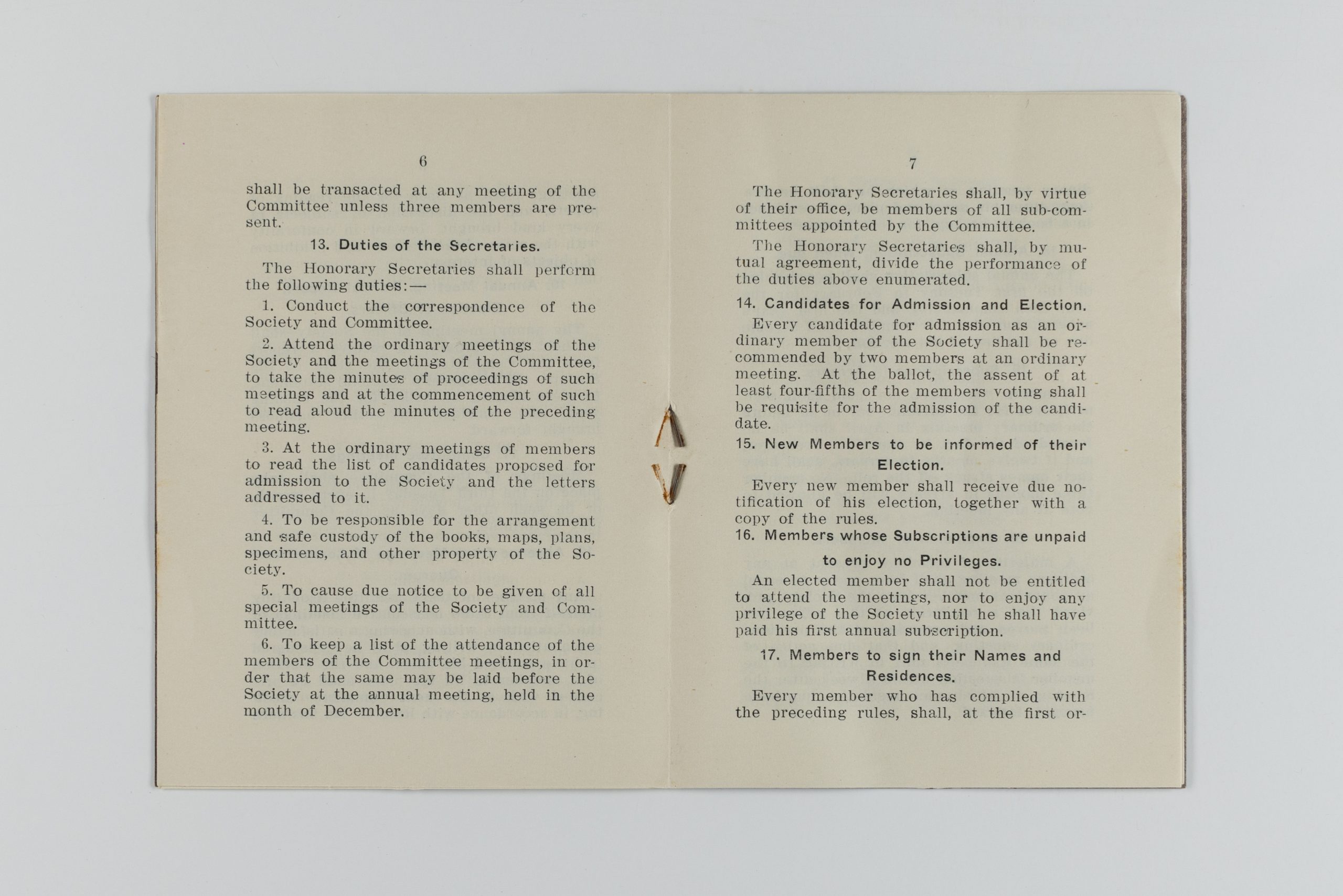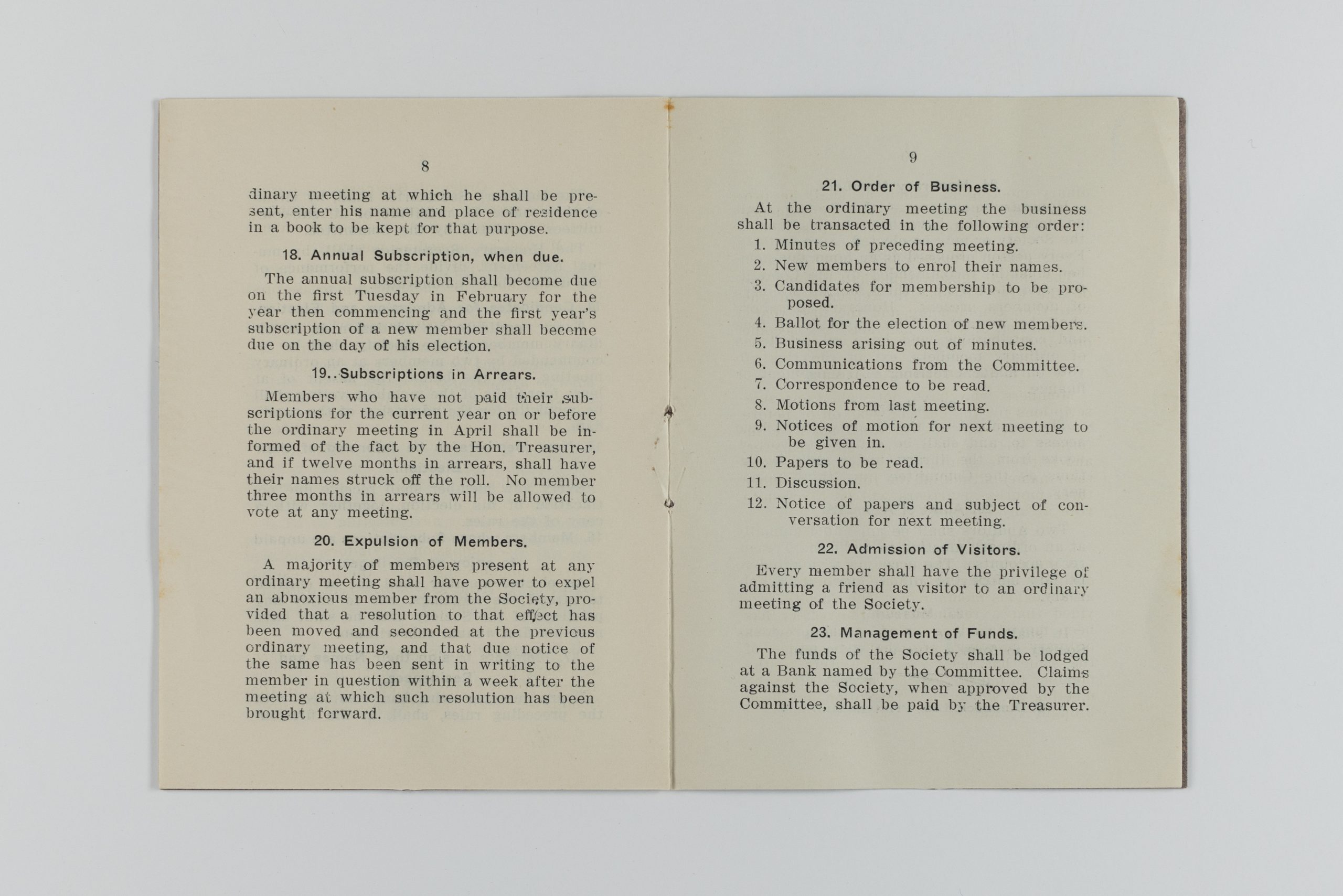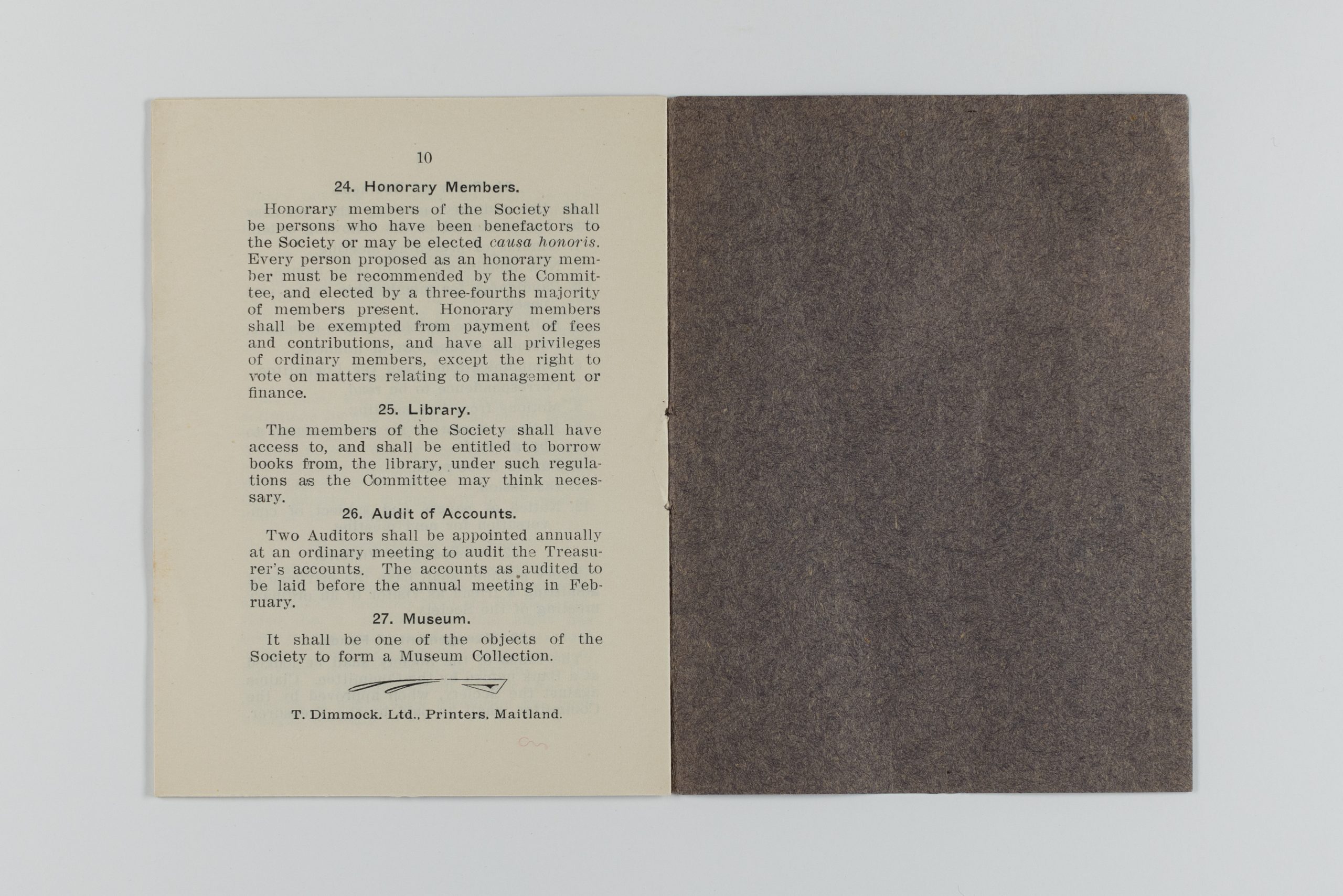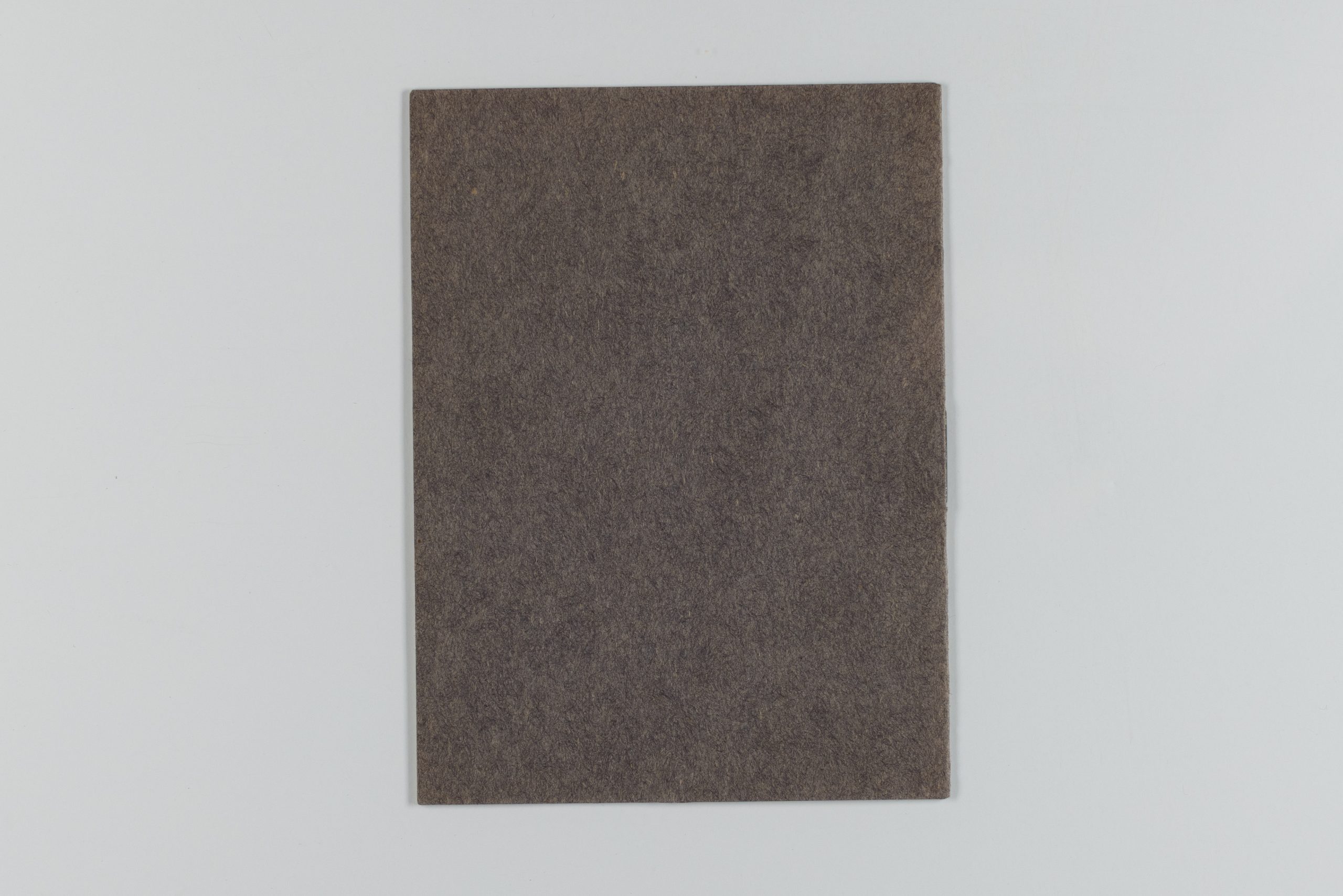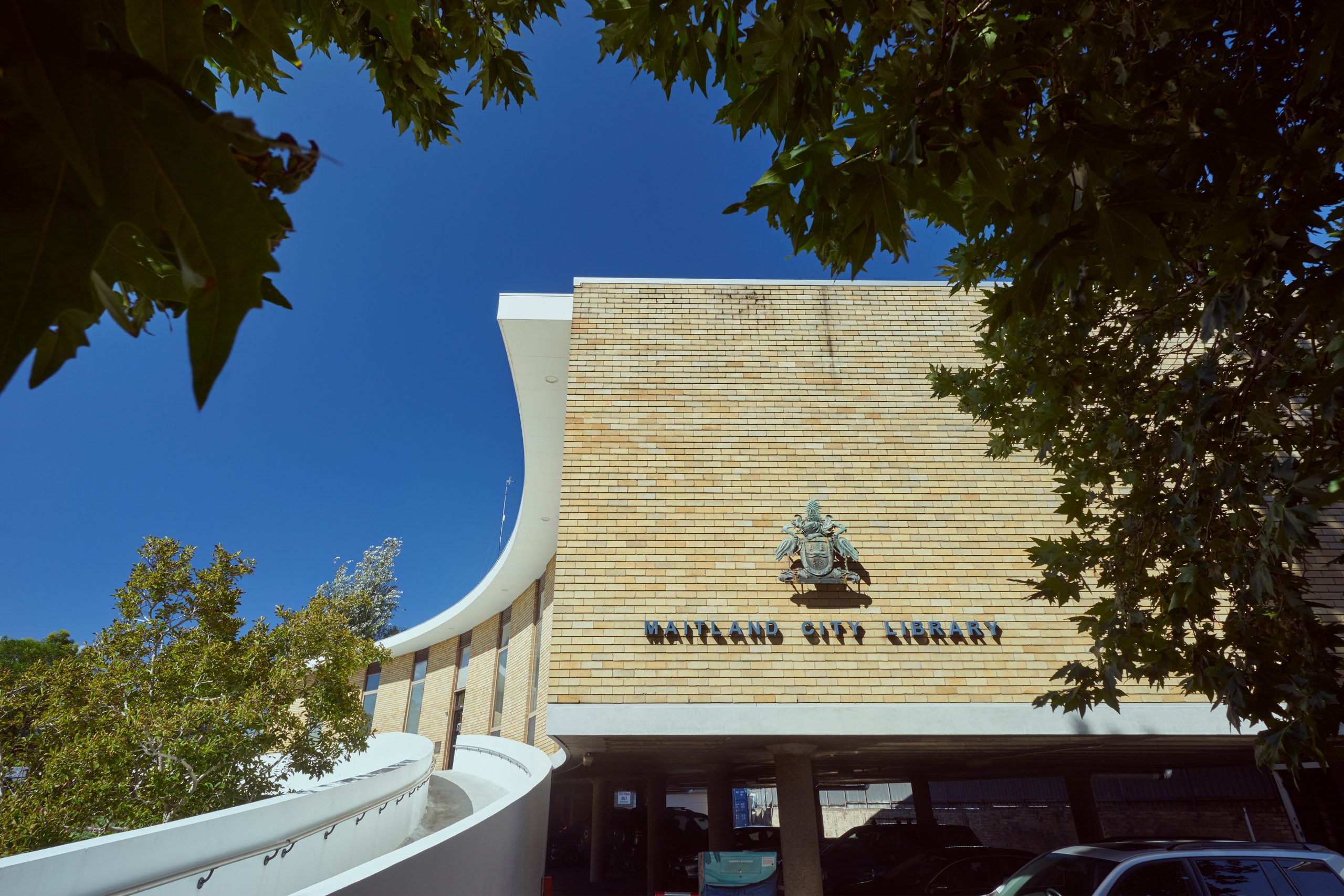Best Laid Plans
Rules for Maitland’s Short-Lived Science Society
Several ladies were in attendance at the Maitland Technical College on the evening of 4 March 1913. It was one of the first meetings of the newly formed Maitland District Scientific and Historical Research Society, and the members might have been surprised to see so many women active in a domain from which they had historically been excluded. All were there to hear the Society’s President Walter J. Enright read aloud the society’s 20 new rules, which were printed in this little booklet. Its typeset words reflected the organisation’s high aspirations and represented a bright future for the society.
From the mid to late nineteenth century, middle class men (and eventually women) banded together in such societies to share their enthusiasm and knowledge for science and technology. The Maitland Scientific Society had been established in 1887, and while it disbanded in 1907, the society reformed in 1913 with a new name. Under the leadership of Walter Enright (1878-1949), a local solicitor and amateur scientist and anthropologist, the society conducted research in geology, biology and Australian history. It was part of a network that extended across Australia and abroad, from which the society drew to invite prominent guest lecturers.
The society and its rule booklet were just over one year old in August 1914, when it was announced that Britain (and in turn, Australia) was at war with Germany. And as the war progressed, many of the male members left to serve at the front or became busy with the war effort, and it became difficult to find available lecturers. In 1916 the society’s own vice-president James Clement Burges (1875-1917) signed up for service and the following year, he was killed in action at Passchendaele.
By 1918, more of the members had fallen, leaving mainly elderly men and women in attendance, so activities were suspended. The society’s best laid plans went astray, but the foundation it established in fostering local interest in science, technology and history is evident today in other local volunteer organisations, including the Maitland and District Historical Society and Maitland Regional Museum.


